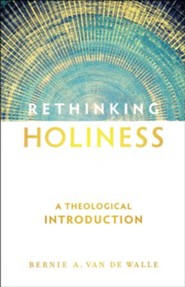If Jesus dealt with my sins on the cross, what is the importance of the resurrection?
There is little doubt that all Christians agree that the work of Jesus on the cross plays a central and indispensable role in human salvation. Yet, Paul says “if Christ has not been raised, your faith is futile; you are still in your sins.” (1 Cor. 15:17 NIV) If sin is dealt with in the cross, days before the resurrection, how can this be so?
First, we have to realize that the term, “the cross,” can mean two related, though distinct things. First, “the cross” can rightly refer to the crucifixion of Jesus Christ on Good Friday and to that event alone. “The cross,” however, can also be a figure of speech (a metonymy) to refer not just to the crucifixion but to all of the events of Easter Weekend, including Jesus’ suffering, death, burial, and resurrection. In this latter sense, it is certainly true that it is in the cross of Jesus Christ, and in the cross alone, that salvation may be found. The saving work of Jesus Christ, while inseparably tied to the crucifixion, entails more than just the crucifixion and, certainly, as Paul notes, necessarily includes the resurrection. (1 Cor. 15:12-19)
Are Paid Ministers or Volunteers Better for the Church?
By Bernie Van De Walle
Even a few years ago, this question wouldn’t have had the same relevance that it does now. However, we live in a culture of growing affluence, growing professionalism and growing litigation. Each of these, in its own way, has led to a trend among churches, especially larger metropolitan churches, to replace volunteers with paid staff who carry with them some level of professional experience and credential. The question rightly arises, “Is this necessarily a sound and healthy trend?”
Undoubtedly, there is a value to having professionals undertake many of the ministries of the Church. Paid professionals may provide a level of excellence, efficiency and creativity beyond the capacity of lay volunteers. Certainly, the Church wants its ministries to be of the highest calibre. Even more certainly, if ministry is to be done in the name of Jesus, there is no room for shoddiness.
Yet, in spite of the practical advantages that the hiring of professionals may seem to have, this question has deep, theological implications. The Church is called to and has a responsibility to minister in this world. The ministry to which it is called, however, is a particular one. It is not simply called to minister. It is called to continue the ministry of Jesus Christ.
Therefore, to be true to its calling, the Church’s ministry must follow in the mould of the ministry of Jesus. The goal of the ministry of Jesus Christ is to seek and to save those that are lost, to redeem humanity from the effects of the Fall. Therefore, the ministries of the Church, like the ministries of Christ, must be as far-reaching as these effects.
Yet the Church must consider more than just the goal of Christ’s ministry – we must also consider the means. Foundational to Christ’s ministry and, therefore, at the heart of Christian ministry today is Incarnation.
Originally presented at the Evangelical Theological Society, 2002
For a PDF of this article click here
It has now been twenty-five years since Harold Lindsell’s Battle for the Bible burst bombastically onto the stage of American Evangelicalism. At the heart of Lindsell’s argument is a lamentation of a drift from a perceived Evangelical consensus on the centrality of the doctrine of inerrancy which, heretofore, had resulted in the righteousness of Evangelical theology and practice. For Lindsell, the continuation of this drift would result in the ultimate loss of the authoritative place of the Scripture in the formation of Christian belief and, eventually, the loss of true Christian belief itself.
Though Lindsell may have correctly observed that a drift of some kind or another was taking place, it is my contention that the consensus for which he mourns never existed. Not only did it not exist more generally, it did not exist even among those that Lindsell cited as the ones who “stood or stand steadfastly for biblical inerrancy . . ..”[1] The most notable of these is Lindsell’s own Fuller colleague Edward John Carnell. Though Carnell did hold to a definition of biblical inerrancy it was not identical to that of Lindsell nor did it sit squarely within the bounds of Lindsell’s mythic Evangelical consensus.
The Controversial Carnell
Read more: Make No Mistake: Lindsell and Carnell on Inerrancy
Contact Me
Bernie A Van De Walle, PhD
Professor of Historical and Systematic Theology
Ambrose Seminary
Calgary, AB
(403) 410-2000 ext. 6906




